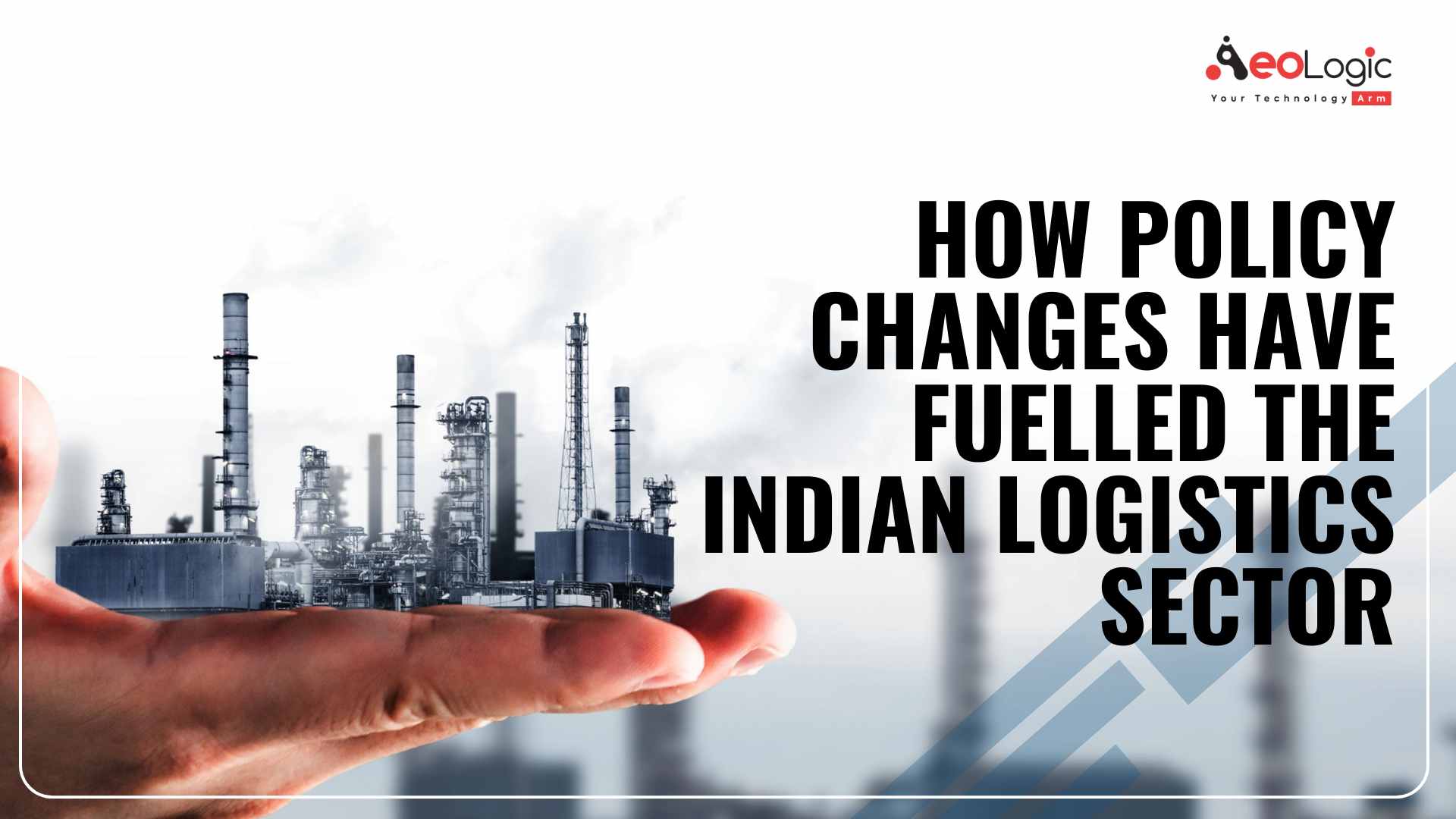India’s Logistics sector, which is the backbone of any economic activity and the most important component in the supply chain of any product, has undergone a radical change since 2016.
India is going through a number of policy changes and the logistics industry is being impacted in various ways. These changes, some of which will take effect from April 1, 2019, are likely to have a major impact on how things are done in the country’s logistics industry for decades to come.
Beginning with the integration of Indian Railways into the Union budget in 1997 and culminating in a strategic shift to sustainable development, this article tells the fascinating story of how we can take a portfolio approach to all aspects of our lives.
India has always been a hotbed of entrepreneurial spirit and inventiveness, with the country’s historically low logistics costs and the vast domestic market becoming a magnet for global investors. But India’s logistics sector has seen some rapid changes over the last decade, with the industry moving from a largely government-owned business to one that is more open to competition and driven by market forces.
Let’s begin!
Table of contents
- Introduction
- What is Logistics?
- What is the Current State of the Indian Logistics Sector?
- The Role of Government Policies
- Conclusion
Key Points:
- The logistics sector in India has been plagued by inefficiencies, preventing the business from reaching its full potential.
- The logistics industry accounts for 14.4% of the country’s GDP but costs 14% of it. To fulfill the country’s objective of a $5 trillion economy, a $180 billion annual deficit must be bridged.
- The Indian logistics industry is definitely being pushed forward by a series of regulatory reforms and infrastructural improvements.
Introduction
The Indian logistics sector has been one of the fastest growing sectors in the country in recent years. This growth can be attributed to a number of policy changes that have taken place in the country, which have made it a more attractive destination for logistics companies.
Some of the key policy changes that have fuelled the growth of the Indian logistics sector include:
- The introduction of the Goods and Services Tax (GST).
- The setting up of dedicated freight corridors.
- Favorable tax policies for the logistics sector.
- Infrastructure development initiatives such as the development of port capacity and warehousing facilities.
- E-commerce boom.
These policy changes have made India an attractive destination for investments in the logistics sector and have helped fuel its rapid growth in recent years.
Also Read: How RFID Solutions Help in Inventory Management
What is Logistics?
Logistics is the process of planning, implementing, and controlling the efficient and effective movement and storage of goods, services, and related information from point of origin to point of consumption for the purpose of conforming to customer requirements.
In a business context, logistics can be referred to as the management of the flow of resources between two points in space. Logistics involves the integration of information, transportation, inventory, warehousing, material handling, and packaging. The goal of logistics is to meet customer requirements in a timely and cost-effective manner.
The Indian logistics sector has undergone a transformation in recent years due to a number of policy changes. These changes have had a positive impact on the growth of the sector and have made it more competitive.
The government’s focus on infrastructure development has led to the construction of new roads, railways, and ports. This has helped reduce transport costs and transit time. The introduction of the Goods and Services Tax (GST) has also made it easier to move goods across state borders by eliminating multiple taxes and reducing paperwork.
Other policy initiatives such as ‘Make in India’ and ‘Skill India’ have also contributed to the growth of the logistics sector by creating new job opportunities. The Indian logistics sector is expected to grow at a CAGR of 10% over the next five years.
Also Read: Why Is CRM Software a Game-changer When It Comes to Delivering Better Customer Experiences?
What is the Current State of the Indian Logistics Sector?
The Indian logistics sector is currently in a state of flux, with a number of policy changes having a major impact on the industry. The most significant change has been the implementation of the Goods and Services Tax (GST), which has had a major impact on the way businesses operate within the country. Other changes such as the demonetization of high-value currency notes and the introduction of e-way bills have also had an impact on the sector.
The GST has had a major impact on businesses operating within the Indian logistics sector by increasing transparency and efficiency in the supply chain. The tax has also made it easier for businesses to comply with regulations and file their taxes online. The GST has also had an impact on prices charged by logistics companies, with many firms now charging GST-inclusive rates.
The implementation of the GST has been positive for the Indian logistics sector overall, but there have been some challenges associated with the transition. Many businesses have struggled to adapt to the new system, and there have been some teething problems with the filing of taxes online. However, these issues are gradually being resolved and the Indian logistics sector is expected to continue to grow in spite of these challenges.
Also Read: The Role of AI in Education And Learning: Just Promises Or Revolution
The Role of Government Policies
The Indian logistics sector is one of the fastest-growing sectors in the country. This growth can be attributed to various policy changes that have been undertaken by the government in recent years. Some of the key policy changes that have fuelled the growth of the logistics sector in India are:
The setting up of a National Logistics Portal:
The National Logistics Portal (NLP) is a one-stop online platform that provides information on all aspects of logistics in India. This portal was set up by the Ministry of Commerce and Industry in partnership with industry bodies such as CII and FIEO. The NLP provides valuable information on various topics related to logistics, such as infrastructure, transportation, warehousing, etc.
Gati Shakti Programme
Prime Minister Narendra Modi announced the Gati Shakti NMP, a 100 lakh crore initiative, in October 2021 with the goal of improving multimodal connectivity and lowering logistics costs. In the logistics division, the emphasis is mostly on the smooth delivery of products and supply chain connections, which are driven by airports, highways, trains, mass transit, logistics infrastructure, and waterways that provide efficient and effective deliveries.
The launch of the e-way bill system:
The e-way bill system is an electronic waybill that needs to be generated for the transport of goods worth more than Rs 50,000. This system was introduced by the government in April 2018 and has helped streamline the movement of goods across the country.
The introduction of GST:
The Goods and Services Tax (GST) was introduced in July 2017 and has had a major impact on the logistics sector. GST has replaced multiple indirect taxes levied by different state governments, which has made interstate transportation of goods much simpler and more efficient.
Also Read: 10 Ways to Use Artificial Intelligence to Improve Business Processes
Conclusion
The Indian logistics sector has seen a lot of changes in recent years, thanks to various policy changes. These changes have made the sector more efficient and have helped it to grow at a rapid pace. With the continued support of the government, it is expected that the sector will continue to thrive in the years to come.
Keeping your fulfillment process steady is made easier with the use of logistics technology for effective solutions in your company. Get in touch with Aeologic Technologies right away to see how it can benefit your company.
Also Read: The Role of AI in Education And Learning: Just Promises Or Revolution
Related Blogs:
- How AI/ML Can Change the Public Transportation Industry
- Transforming Business With Digital Technology in the Oil Palm Industry in India
- Importance of Digital Asset Management in the Retail Industry
- How AI is Transforming the Agriculture Industry
- 10 Ways to Use Artificial Intelligence to Improve Business Processes
- The Future of IoT Technology in Convenience Stores
- Building Manufacturing Resilience Through AI and ML









